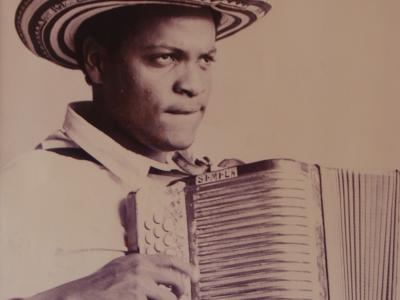One of Mexico’s most gifted in a long tradition of amazing ballad singers, this Prince of Song's success spanned more than 47 years, during which he sold 95 million records.
Born in 1948, José Rómulo Sosa Ortiz grew up in Mexico City, to opera tenor José Sosa Esquivel and concert pianist Margarita Ortiz, listening to the music of Frank Sinatra and Johnny Mathis in addition to the excellent Mexican bolero and ranchero singers at the time.
As a teenager, he began singing in cafes and then as part of a rock group called the Heart Breakers, which released an unsuccessful album in the mid-1960s. As soon as José went solo with a debut single for Orfeon Records in 1965, when he was 17 years old, he became an almost instant hit. Following his first appearance on television, he was offered a solo contract by composer Rubén Fuentes with RCA Records. His first album and practically every subsequent recording bearing his name, became a national hit.
Around the same time his father died, which, even though he had abandoned the family early on, had a massive impact on him and caused him to add his dad’s name, José, to his own name in his honour to create the stage name José José. “He was a great opera singer and died very young, without knowledge of my success,” he said in 2005. “Since I inherited his voice, this is recognition of that inheritance.”
His solo career took off with a single called La Nave del Olvido and he rose to the top of the Latin charts in with songs such as El Triste. His distinctive style — subtle and volcanic all at once — left an indelible imprint on every single song he touched. A combination of baritone and lyric tenor, his voice had an poetic quality, almost introspective and melancholy.
Despite his retiring demeanour (a stark contrast to some of his peers in the South American recording industry) José José also launched a film career, appearing in Buscando Una Sonrisa. He saw even more commercial success in the 1980s; the album Secrets, released in 1983, became his most popular and biggest best-selling collaboration with the Spanish composer and producer Manuel Alejandro, selling four million copies.
In the 90s his success began to transfer increasingly to the American charts, where songs such as ‘Como Tu’, Amnesia’ and ‘Llora Corazon’ became staples of the Billboard Latin charts. Following the long tradition of Mexican singers cum film stars, he made several more film appearances culminating in a starring role in 1993’s Perdóname Todo.
Around this time and despite, or some might say because of, his huge success José José began to struggle with depression and substance abuse. His substance abuse led in 1993 to the dissolution of his 18-year marriage to the model Anel Noreña, with whom he had two children, José Joel and Marisol.
His addiction reached its nadir in the mid-90s when he ended up homeless, and began sleeping in a car on the outskirts of Mexico City. Friends intervened and took José José to an addiction treatment centre in the United States.
After completing treatment he began orchestrating a comeback, a fraught experience for someone new to sobriety. In 1995 he married Sarita Salazar, a Cuban-American he had met in treatment. The couple had a daughter, Sara, the next year. He the Billboard Latin Music Hall Of Fame in 1997.
José José continued recording and performing for years. Confident in his craft, he said it was only natural that new generations embrace his ballads. “When young people fall in love, they start to understand my music,” he said.
But in time he found it difficult to sing. The Greek composer and pianist Yanni said it had taken José José seven days to prepare for a concert with him in 2008. “That was an act of bravery on his part,” Yanni said. “He fought really hard for every word, for every sound.”
In March 2017, he told his fans of his pancreatic cancer. He died Saturday, Sept. 28, in Miami. He was 71 years old. The following year, Telemundo broadcast a telenovela based on José José’s life. His breakout hit, La Nave del Olvido appeared on the soundtrack for Alfonso Cuarón’s Academy Award-winning film “Roma” (2018).





















